Hyundai i30 vs Toyota Yaris – Which car suits you better?
Everyday use, family trips or long-distance drives – here’s where the differences show.
Discover whether Hyundai i30 or Toyota Yaris fits your lifestyle better.
Costs and Efficiency:
When it comes to price and running costs, the biggest differences usually appear. This is often where you see which car fits your budget better in the long run.
Toyota Yaris has a slight advantage in terms of price – it starts at 21900 £, while the Hyundai i30 costs 24000 £. That’s a price difference of around 2134 £.
Fuel consumption also shows a difference: Toyota Yaris manages with 3.80 L and is therefore convincingly more efficient than the Hyundai i30 with 5.70 L. The difference is about 1.90 L per 100 km.
Engine and Performance:
Power, torque and acceleration are the classic benchmarks for car enthusiasts – and here, some clear differences start to show.
When it comes to engine power, the Toyota Yaris has a clearly edge – offering 280 HP compared to 140 HP. That’s roughly 140 HP more horsepower.
In acceleration from 0 to 100 km/h, the Toyota Yaris is convincingly quicker – completing the sprint in 5.50 s, while the Hyundai i30 takes 9.60 s. That’s about 4.10 s faster.
In terms of top speed, the Toyota Yaris performs a bit better – reaching 230 km/h, while the Hyundai i30 tops out at 197 km/h. The difference is around 33 km/h.
There’s also a difference in torque: Toyota Yaris pulls clearly perceptible stronger with 390 Nm compared to 253 Nm. That’s about 137 Nm difference.
Space and Everyday Use:
Beyond pure performance, interior space and usability matter most in daily life. This is where you see which car is more practical and versatile.
Both vehicles offer seating for 5 people.
In curb weight, Toyota Yaris is somewhat lighter – 1090 kg compared to 1291 kg. The difference is around 201 kg.
In terms of boot space, the Hyundai i30 offers evident more room – 395 L compared to 286 L. That’s a difference of about 109 L.
In maximum load capacity, the Hyundai i30 performs distinct better – up to 1301 L, which is about 366 L more than the Toyota Yaris.
When it comes to payload, Toyota Yaris minimal takes the win – 525 kg compared to 509 kg. That’s a difference of about 16 kg.
Who wins the race?
The Toyota Yaris proves to be outperforms in nearly all aspects and therefore becomes our DriveDuel Champion!
Toyota Yaris is the better all-rounder in this comparison.
 @ Toyota Motor Corporation
@ Toyota Motor Corporation
Toyota Yaris
Hyundai i30
The Hyundai i30 proves that sensible can also be stylish, offering a confident driving character wrapped in neat, modern design. It serves up a roomy, well-equipped cabin and composed ride that make everyday motoring feel like a clever purchase rather than a compromise.
details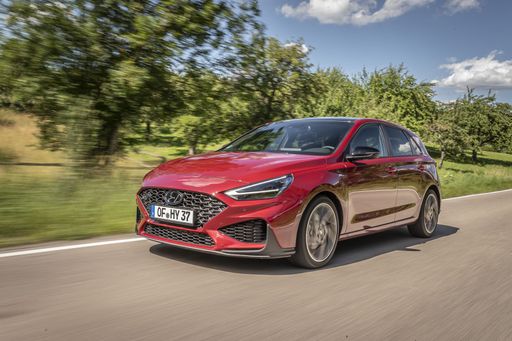 @ Hyundai Motor Company
@ Hyundai Motor Company
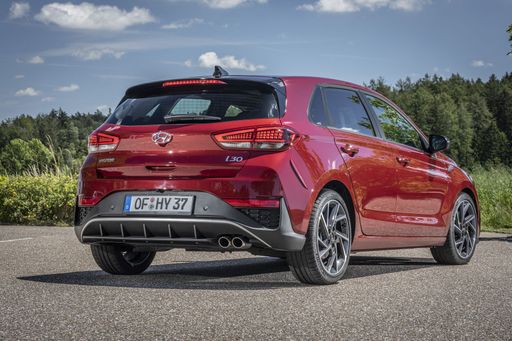 @ Hyundai Motor Company
@ Hyundai Motor Company
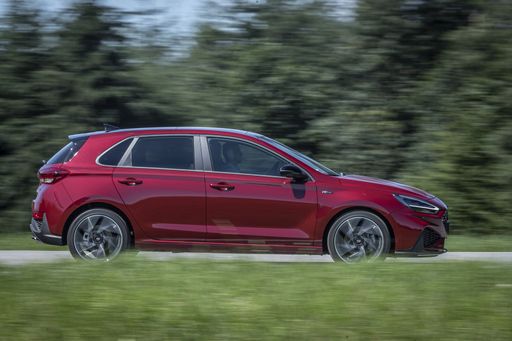 @ Hyundai Motor Company
@ Hyundai Motor Company
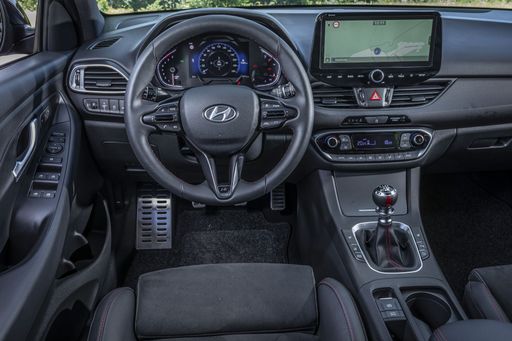 @ Hyundai Motor Company
@ Hyundai Motor Company
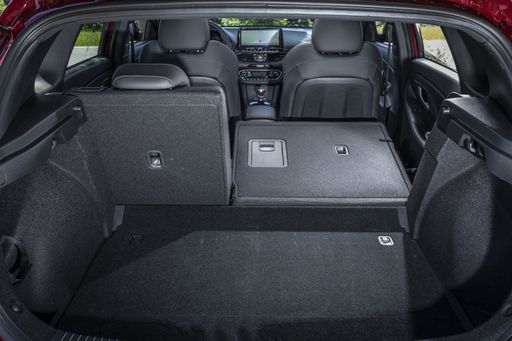 @ Hyundai Motor Company
@ Hyundai Motor Company
Toyota Yaris
The Toyota Yaris is a sprightly city hatch that packs clever packaging, surprising comfort and fuel-sipping manners into a neat, easy-to-park package. It rewards sensible buyers with low running costs, friendly ergonomics and a forgiving drive, delivered with Japanese reliability and just enough personality to make errands feel a little less ordinary.
details @ Toyota Motor Corporation
@ Toyota Motor Corporation
 @ Toyota Motor Corporation
@ Toyota Motor Corporation
 @ Hyundai Motor Company
@ Hyundai Motor Company
|
 @ Toyota Motor Corporation
@ Toyota Motor Corporation
|
|
|
|
Costs and Consumption |
|
|---|---|
|
Price
24000 - 29300 £
|
Price
21900 - 46700 £
|
|
Consumption L/100km
5.7 - 6 L
|
Consumption L/100km
3.8 - 9.5 L
|
|
Consumption kWh/100km
-
|
Consumption kWh/100km
-
|
|
Electric Range
-
|
Electric Range
-
|
|
Battery Capacity
-
|
Battery Capacity
-
|
|
co2
130 - 136 g/km
|
co2
87 - 215 g/km
|
|
Fuel tank capacity
50 L
|
Fuel tank capacity
36 - 50 L
|
Dimensions and Body |
|
|---|---|
|
Body Type
Hatchback
|
Body Type
Hatchback
|
|
Seats
5
|
Seats
4 - 5
|
|
Doors
5
|
Doors
3 - 5
|
|
Curb weight
1291 - 1407 kg
|
Curb weight
1090 - 1356 kg
|
|
Trunk capacity
395 L
|
Trunk capacity
141 - 286 L
|
|
Length
4340 mm
|
Length
3940 - 3995 mm
|
|
Width
1795 mm
|
Width
1745 - 1805 mm
|
|
Height
1455 mm
|
Height
1455 - 1500 mm
|
|
Max trunk capacity
1301 L
|
Max trunk capacity
935 L
|
|
Payload
463 - 509 kg
|
Payload
289 - 525 kg
|
Engine and Performance |
|
|---|---|
|
Engine Type
Petrol, Petrol MHEV
|
Engine Type
Full Hybrid, Petrol
|
|
Transmission
Manuel, Automatic
|
Transmission
Automatic, Manuel
|
|
Transmission Detail
Manual Gearbox, Dual-Clutch Automatic
|
Transmission Detail
CVT, Manual Gearbox, Automatic Gearbox
|
|
Drive Type
Front-Wheel Drive
|
Drive Type
Front-Wheel Drive, All-Wheel Drive
|
|
Power HP
100 - 140 HP
|
Power HP
116 - 280 HP
|
|
Acceleration 0-100km/h
9.6 - 13.1 s
|
Acceleration 0-100km/h
5.5 - 9.7 s
|
|
Max Speed
178 - 197 km/h
|
Max Speed
175 - 230 km/h
|
|
Torque
172 - 253 Nm
|
Torque
390 Nm
|
|
Number of Cylinders
3 - 4
|
Number of Cylinders
3
|
|
Power kW
74 - 103 kW
|
Power kW
85 - 206 kW
|
|
Engine capacity
998 - 1482 cm3
|
Engine capacity
1490 - 1618 cm3
|
General |
|
|---|---|
|
Model Year
2024
|
Model Year
2024 - 2025
|
|
CO2 Efficiency Class
D, E
|
CO2 Efficiency Class
B, G
|
|
Brand
Hyundai
|
Brand
Toyota
|
What drive types are available for the Hyundai i30?
Available configurations include Front-Wheel Drive.
The prices and data displayed are estimates based on German list prices and may vary by country. This information is not legally binding.
